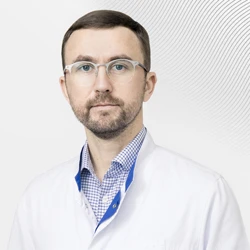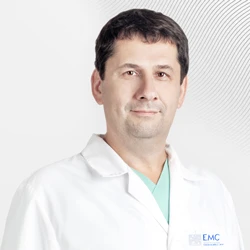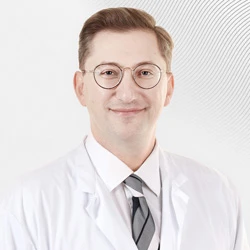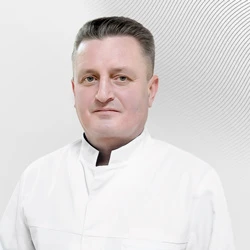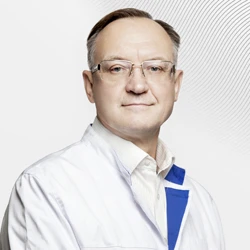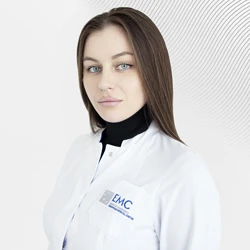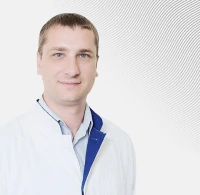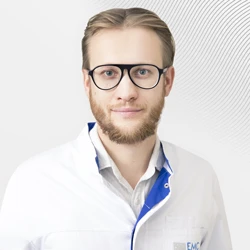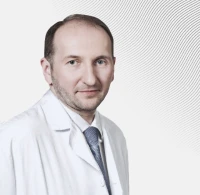Multiple sclerosis
Multiple sclerosis is a disease in which its own immune system attacks the protective lining of nerve fibers (myelin) of the brain and spinal cord. This disrupts the transmission of signals between the brain and other parts of the body, as well as disrupts the condition of the nerve fibers themselves. The manifestations of this disease can be very different depending on the location of the injury and the number of damaged nerve fibers. A feature of multiple sclerosis is the predisposition to the disease in young active people, who are otherwise usually practically healthy. Multiple sclerosis is the second most common cause of disability in young people after injury. Some patients with severe multiple sclerosis cannot move at all, while other patients may not experience any symptoms for a long time. The possibilities of effective treatment of multiple sclerosis have significantly expanded over the past 5 years, although, unfortunately, not all methods are available to patients in Russia. Neurologists at the European Medical Center offer patients with multiple sclerosis the experience and opportunities of Western European medicine in Moscow.
Symptoms and course of multiple sclerosis
The following symptoms occur most often with multiple sclerosis:
- numbness or weakness in one or more extremities, which usually occur simultaneously on one side of the body or in the legs and trunk;
- partial or complete visual impairment, usually with one eye at a time, often with pain when moving the eyes;
- double vision or blurred vision;
- a feeling of electric shock in the back that occurs with certain movements of the neck, especially when the head is tilted forward;
- tremor;
- impaired coordination and unsteady gait;>
- speech disorder;
- weakness;
- dizziness;
- violation of urination and defecation.
In most patients with multiple sclerosis, the course of the disease is undulating: attacks of the disease occur for several days or weeks. Usually, after an attack, the symptoms disappear or disappear completely, and a period of remission sets in, which can last for months or even years. In 60-70% of patients with a wave-like course, at some point the symptoms begin to progress steadily without remission, usually affecting primarily gait – this course is called secondary progressive. In some patients with multiple sclerosis, the course is progressive, without attacks from the very beginning of the disease – this course is called primary progressive.
As the disease progresses over time, patients with multiple sclerosis may develop the following problems:
- muscle spasms and muscle tension (spasticity) that interfere with movement;
- paralysis of the upper and lower extremities;
- violation of independent movement and self-service;
- disorders of urination, defecation and sexual function;
- decreased memory, intellectual functions, speech, and emotional disorders such as depression;
- epilepsy.
Risk factors for multiple sclerosis:
- Age. Multiple sclerosis can occur at any age, but people between the ages of 15 and 60 are more likely to suffer.
- Gender. Women are about 2 times more likely to develop multiple sclerosis.
- Family inheritance. The risk of developing multiple sclerosis is higher if parents and siblings have this disease.
- Infections. The presence of certain viruses in the body, in particular, the Epstein-Barr virus, which causes infectious mononucleosis, was statistically associated with the development of multiple sclerosis.
- Race. The highest risk of developing multiple sclerosis is among "white" people, especially those of Northern European origin.
- Climate. Multiple sclerosis is most common in temperate countries in Europe, southern Canada, the northern United States, and southeastern Australia.
- Autoimmune diseases. The risk of developing multiple sclerosis is slightly higher in people suffering from thyroid diseases, type 1 diabetes mellitus, and inflammatory bowel diseases.
- Smoking. Smokers who have suffered a single attack of symptoms are more likely to develop multiple sclerosis later on.
Examination of patients with a diagnosis of multiple sclerosis or suspected multiple sclerosis
Before the first consultation with your doctor, we recommend that you prepare by answering several important questions.
Examination for multiple sclerosis:
- Consultation with a neurologist with a detailed medical history and examination.
- Laboratory blood tests to rule out certain infectious, inflammatory, and systemic diseases that may produce symptoms similar to multiple sclerosis.
- Lumbar puncture, in which a small amount of fluid is taken from the spinal canal for laboratory examination. This makes it possible to identify changes in the cellular and biochemical composition of the cerebrospinal fluid characteristic of multiple sclerosis, to detect a special pathological type of antibody synthesis (oligoclonal antibodies) and to exclude viral infections and other conditions similar to multiple sclerosis.
- Magnetic resonance imaging can reveal lesions of the brain and spinal cord. During this study, it may be necessary to administer an intravenous contrast agent, which can help identify lesions in the active phase.
- Evoked brain potentials help to identify abnormal function of pathways in the nervous system through the visual and auditory pathways and through sensory and motor pathways between the brain and limbs.
Treatment of multiple sclerosis in EMC
The doctors of the Clinic of Neurology and Neurosurgery of the European Medical Center have extensive experience in using not only standard methods of drug treatment and plasma exchange, but also a new generation of drugs such as fingolimod, dimethyl fumarate, teriflunomide, natalizumab, mitoxantrone, azathioprine, rituximab. In addition, in the treatment of patients with multiple sclerosis, much attention is paid to the treatment of the disease with drugs that affect muscle tone and walking (fampridine, myorelascants, botulinum toxin injections), various methods of physiotherapy and rehabilitation, if necessary, neurosurgical methods for the treatment of spasticity (functional neurosurgery), treatment of concomitant cognitive and emotional-mental disorders, pelvic disorders, issues of psychological support for the patient and his relatives.
Why the EMC
The first and only clinic in Russia, created in the image of the world's leading clinics
EMC is a multidisciplinary center offering patients a high level of medical services and a personalized approach
Worldwide recognition and awards
 Learn more
Learn more
Worldwide recognition and awards
 Certificates and licenses
Certificates and licenses
Make an appointment for a consultation
Specify your contacts and we will contact you to clarify the details
Reviews
and new products of the EMC

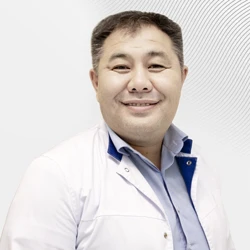
.webp)
